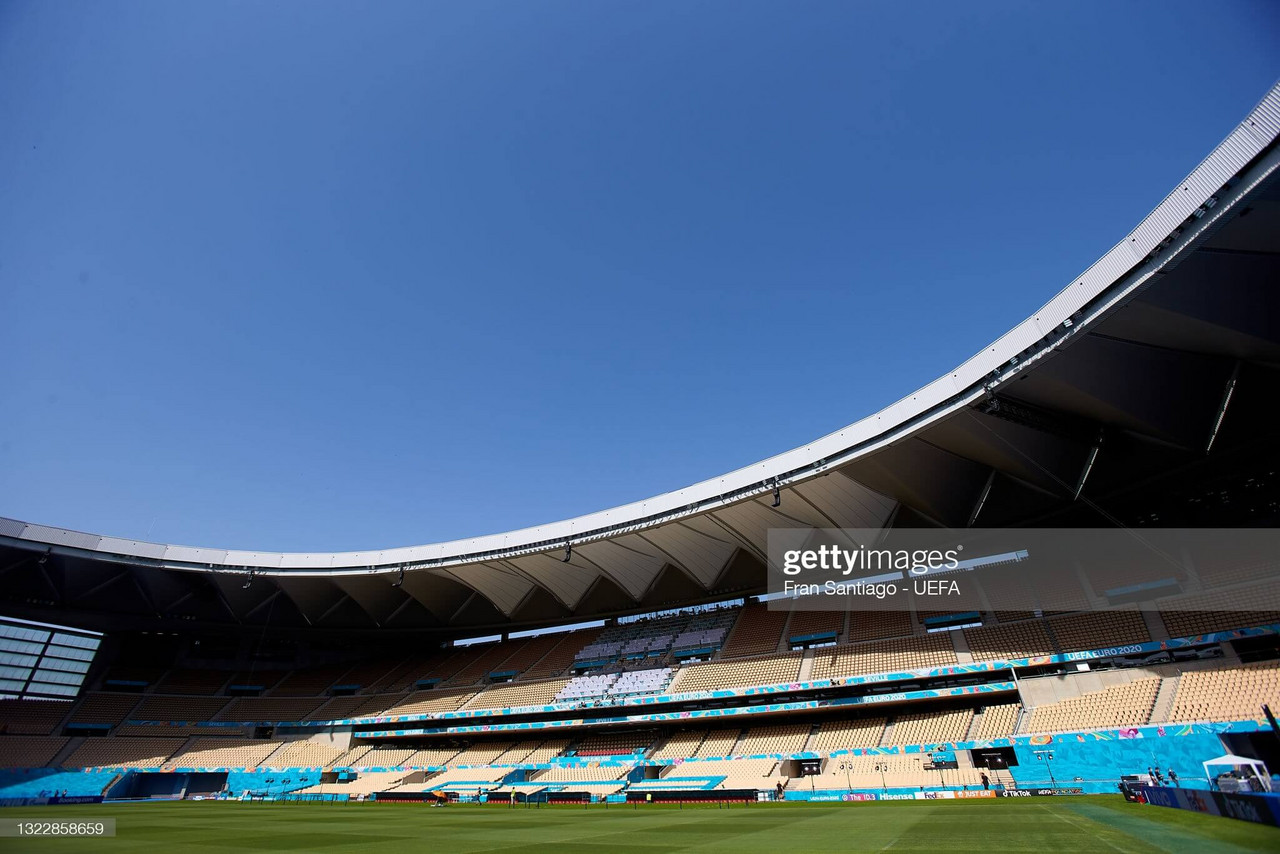Athletic Bilbao’s San Mames stadium was chosen as the original host of Spain’s three Euro 2020 group games along with a round-of-16 match, but the local authorities couldn’t guarantee that any spectators would be allowed within the stadium for the games given local Covid-19 restrictions.
There was another, more historic, slant to Bilbao opting not to continue as a host venue. It is not particularly easy to find a swell of support for the Spanish national team in this part of the country. The Basque Country prides itself on its own unique identity and there has been, and continues to be, an undercurrent of wishful independence in the region.
Thus the move of four European Championship games to Seville was not all that contentious. The Andalusian city is much more supportive of the Spain team and will be more comfortable hanging up the bunting and organising any post-match fiestas.
However, there is a downside to moving the games to southern Spain. Whereas the temperatures up in northern Bilbao are currently in the mid-to-low twenties in terms of degrees centigrade, down in Seville they are pushing 40°C in mid-afternoon. In fact, when Spain kick-off their Euro 2020 campaign against Sweden at 9pm local time on Monday the temperature is forecast to be 29°C and 40 per cent humidity.
'Frying pan of Europe'
Seville is known as the hottest city in mainland Europe, it is often given the tag of ‘the frying pan of Europe’ due to its clement climate. Plumb oranges and bright lemons hang from trees even in the midst of ‘winter’. During the summer months many locals move out from the city to the coast to take advantage of the see breeze and more comfortable temperatures.
The Spanish national team will not be able to run to the coast during their three group games, however, and the heat may have an impact on the matches. Particularly concerning is the final group D game against Slovakia, which is due to take place at 6pm on June 23. The temperature at the Estadio la Cartuja could easily be in excess of 35°C.
That may prove a problem for Slovakia who will not be accustomed to such an intense heat. There will no doubt be a slower tempo to the matches in Seville than if they were staged in Bilbao. There has been no mention of drinks breaks during Euro 2020 matches but such testing conditions warrant a period of refreshments.
Other host cities which will offer high temperatures during the tournament include: Baku in Azerbaijan, where Wales play two of their group games, and the Italian capital, Rome, which will host a quarter-final as well as group matches.
However, none compare to Seville. There have previously been reports of supporters suffering heatstroke when attending La Liga matches in the city during the latter stages of summer. “During a football match heat is lost through the evaporation of sweat,” explains Sarah Griffiths, a Sport Science graduate, on the effect of heat on sports performance.
“Whilst performing there is constant competition between the muscles and the skin for a limited blood supply to provide oxygen to the muscle and facilitate heat loss at the surface of the skin, therefore meaning that the body has a reduced ability to decrease and maintain its temperature.
“Football players can reduce the effects of a hot climate by consuming an adequate amount of fluid before, during and after competition or training to avoid the unpleasant consequences of dehydration.
“Acclimatisation should be a major part of the athlete’s plan up to a game or competition so that the individual can adapt to the environment adequately. It is recommended that 10-14 days of acclimatisation is needed for a good adaptation period.
“Usually this is done by going to the actual place the competition will be held and performing shorter and easier training sessions at the beginning and building upon it in time for the main event.”










































